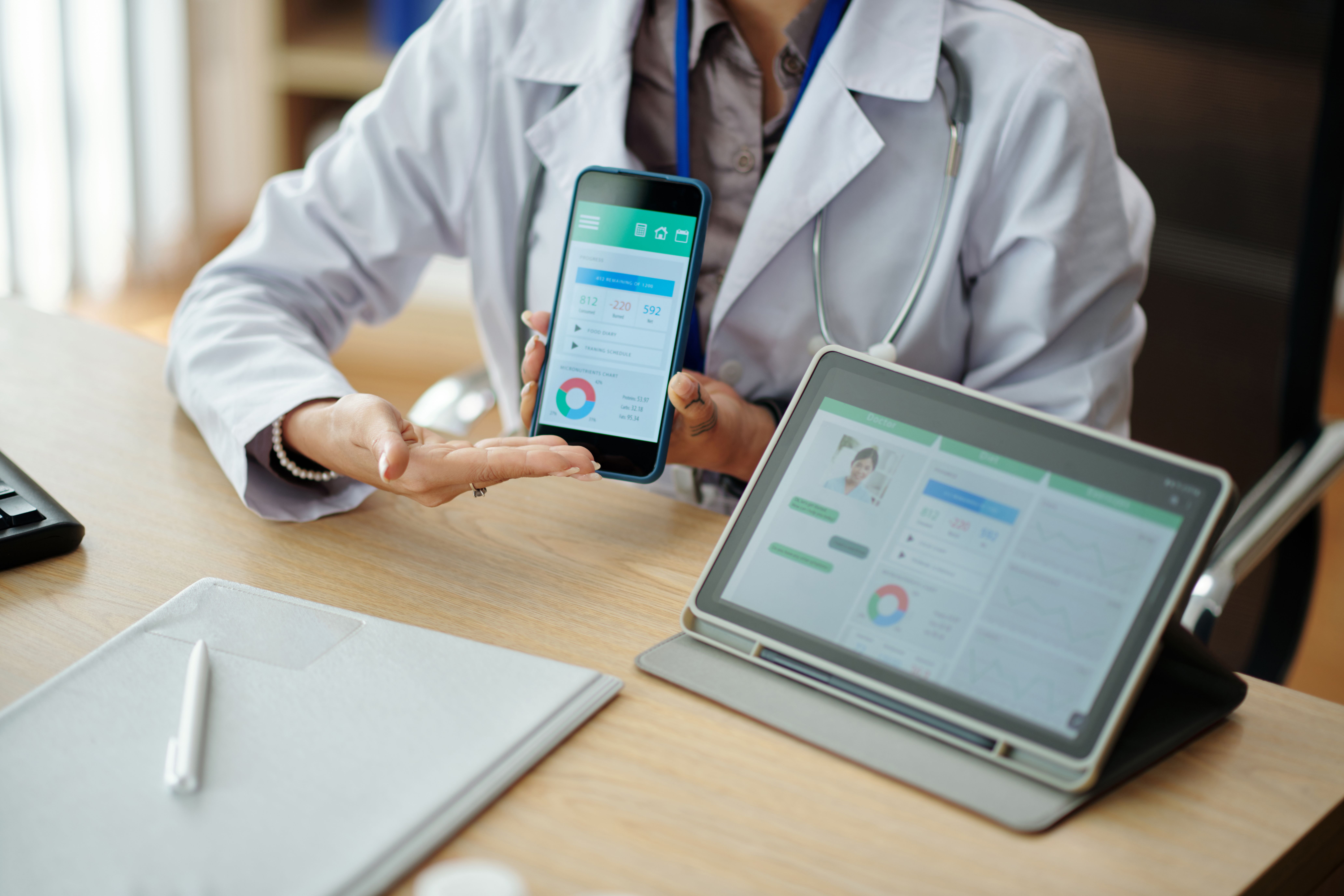
AI-Powered Drug Discovery Accelerates Medical Breakthroughs
 Imagine a world where life-saving drugs are developed in months instead of years, where the cost of bringing a new medication to market is slashed by billions of dollars, and where personalized treatments are the norm rather than the exception. This isn't science fiction—it's the rapidly evolving reality of AI-powered drug discovery.
Imagine a world where life-saving drugs are developed in months instead of years, where the cost of bringing a new medication to market is slashed by billions of dollars, and where personalized treatments are the norm rather than the exception. This isn't science fiction—it's the rapidly evolving reality of AI-powered drug discovery.
In the traditional pharmaceutical landscape, developing a new drug is a Herculean task. It typically takes over a decade and costs upwards of $2.6 billion to bring a single drug from the laboratory to the pharmacy shelf.
The process is fraught with challenges, from identifying potential drug candidates to navigating the complex maze of clinical trials. But what if we could harness the power of artificial intelligence to revolutionize this process?
The AI Revolution in Drug Discovery
A. What is AI-powered drug discovery?
AI-powered drug discovery refers to the use of artificial intelligence and machine learning techniques to streamline and accelerate the process of identifying, designing, and developing new pharmaceutical compounds. This approach leverages vast amounts of data—from molecular structures and genetic information to clinical trial results and scientific literature—to make predictions, generate insights, and guide decision-making throughout the drug development pipeline.
At its core, AI-powered drug discovery aims to:
- Identify novel drug targets
- Design and optimize drug candidates
- Predict drug-target interactions and potential side effects
- Streamline preclinical and clinical trials
- Repurpose existing drugs for new indications
B. How AI is transforming the drug development process
The integration of AI into drug discovery is reshaping every stage of the process:
- Target Identification: AI algorithms can analyze vast databases of genetic and proteomic data to identify potential drug targets more quickly and accurately than traditional methods.
- Lead Generation: Machine learning models can screen millions of compounds virtually, predicting which ones are most likely to interact with the target effectively.
- Lead Optimization: AI can suggest modifications to lead compounds to improve their efficacy, safety, and pharmacokinetic properties.
- Preclinical Studies: AI models can predict toxicity and side effects, potentially reducing the need for extensive animal testing.
- Clinical Trials: AI can help design more efficient clinical trials, predict patient responses, and identify optimal dosing regimens.
- Post-Market Surveillance: Machine learning algorithms can analyze real-world data to detect rare side effects and identify new potential uses for existing drugs.
Recent Breakthroughs and Success Stories
The field of AI-powered drug discovery is advancing rapidly, with new breakthroughs and success stories emerging regularly. Let's explore some recent examples that highlight the transformative potential of this technology.
A. Case study: AI-discovered antibiotics
One of the most exciting applications of AI in drug discovery has been in the field of antibiotic research. In 2020, researchers at MIT used a deep learning model to identify a powerful new antibiotic compound, which they named halicin. This AI-discovered molecule showed effectiveness against a wide range of bacteria, including some antibiotic-resistant strains.
What makes this discovery particularly remarkable is the speed and novelty of the approach. The AI model screened over 100 million chemical compounds in a matter of days, identifying candidates that human researchers might have overlooked. This breakthrough demonstrates the potential of AI to address one of the most pressing challenges in global health: the rise of antibiotic-resistant bacteria.
B. Partnerships between tech giants and pharmaceutical companies
The promise of AI in drug discovery has led to a surge of collaborations between technology companies and pharmaceutical giants. These partnerships aim to combine the data processing and AI expertise of tech firms with the biological knowledge and research capabilities of pharma companies.
Some notable examples include:
- Google's DeepMind and Isomorphic Labs: In 2024, these Alphabet subsidiaries are working on using AI to predict protein structures and design new drugs.
- Microsoft and Novartis: This partnership focuses on using AI to accelerate drug development and improve the efficiency of clinical trials.
- IBM Watson and Pfizer: They've collaborated on immuno-oncology research, using AI to analyze vast amounts of data to identify new drug targets.
- Exscientia and Bristol Myers Squibb: In 2024, this collaboration has led to the development of several AI-designed drug candidates that have entered clinical trials.
C. Real-world examples of AI accelerating drug development
COVID-19 Response: During the pandemic, AI played a crucial role in accelerating drug and vaccine development. For instance, BenevolentAI used its AI platform to identify baricitinib as a potential treatment for COVID-19 in just four days. The drug was later approved for emergency use by the FDA.
Rare Disease Research: In 2023, researchers used AI to identify a potential treatment for a rare form of muscular dystrophy. The AI system analyzed genetic data and scientific literature to propose a novel drug target, which is now being pursued in preclinical studies.
Cancer Drug Discovery: AI models have been used to predict the effectiveness of combination therapies in cancer treatment. In 2024, an AI-designed combination therapy for a specific type of leukemia entered phase II clinical trials, showing promising early results.
Repurposing Existing Drugs: AI has proven particularly effective in identifying new uses for existing drugs. For example, in 2023, an AI system identified a common antidepressant as a potential treatment for a rare form of dementia, leading to a successful phase III clinical trial.
The Science Behind AI in Drug Discovery
To truly appreciate the impact of AI on drug discovery, it's essential to understand the underlying technologies and methodologies. While the details can be complex, we'll break down the key concepts in accessible terms.
At the heart of AI-powered drug discovery are machine learning (ML) and deep learning (DL) algorithms. These computational models can learn from vast amounts of data to make predictions and decisions.
Machine Learning in Drug Discovery
- Supervised Learning: Used to predict properties of molecules based on known examples.
- Unsupervised Learning: Helps in identifying patterns in molecular data without predefined categories.
- Reinforcement Learning: Employed in designing new molecules with desired properties.
Deep Learning and Neural Networks
- Convolutional Neural Networks (CNNs): Effective in analyzing 2D and 3D molecular structures.
- Recurrent Neural Networks (RNNs): Used for analyzing sequential data, like protein sequences.
- Graph Neural Networks (GNNs): Particularly useful for modeling molecular structures and interactions.
Conclusion: AI-Powered Drug Discovery Accelerates Medical Breakthroughs
The integration of artificial intelligence in drug discovery has ushered in a new era of medical innovation, dramatically accelerating the pace of breakthroughs and transforming the pharmaceutical landscape. As we've seen, AI-powered approaches are revolutionizing every stage of the drug discovery process, from initial research to clinical trials.
To learn more about how AI is revolutionizing drug discovery or to explore potential collaborations in this exciting field, please don't hesitate to contact us. Our team of experts is ready to discuss how we can work together to accelerate medical breakthroughs using AI-powered solutions.
Related Articles


